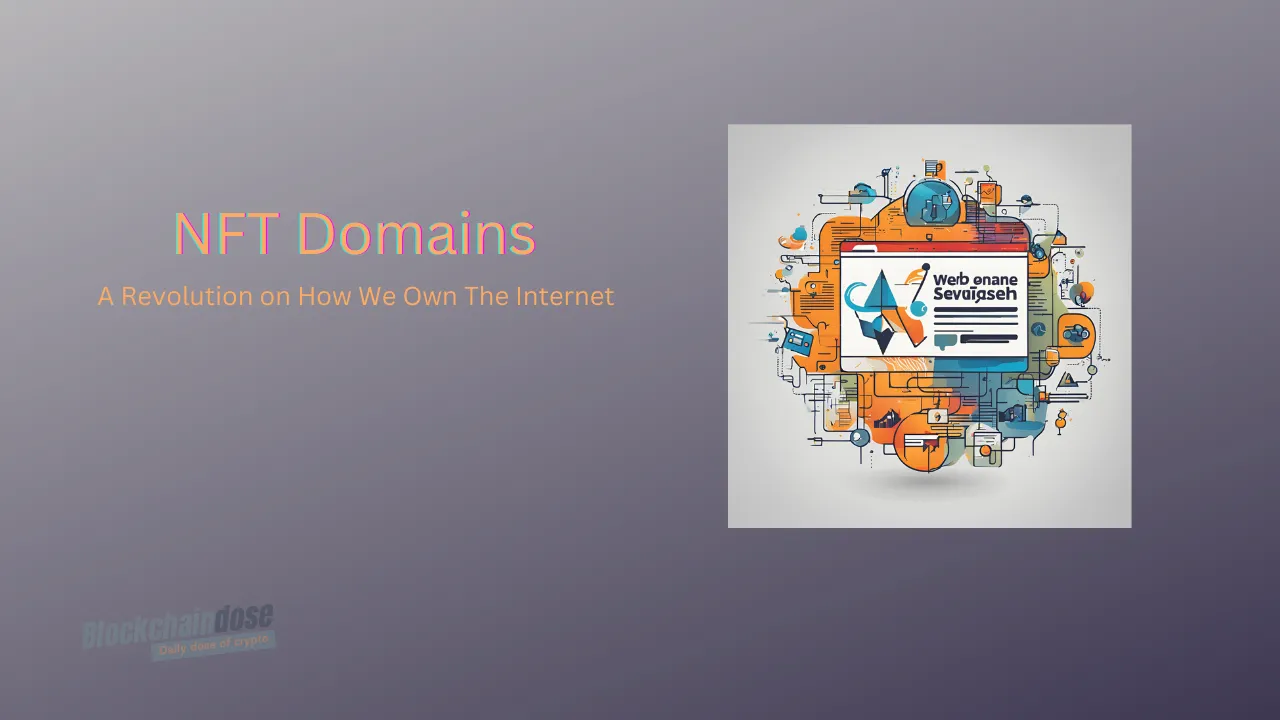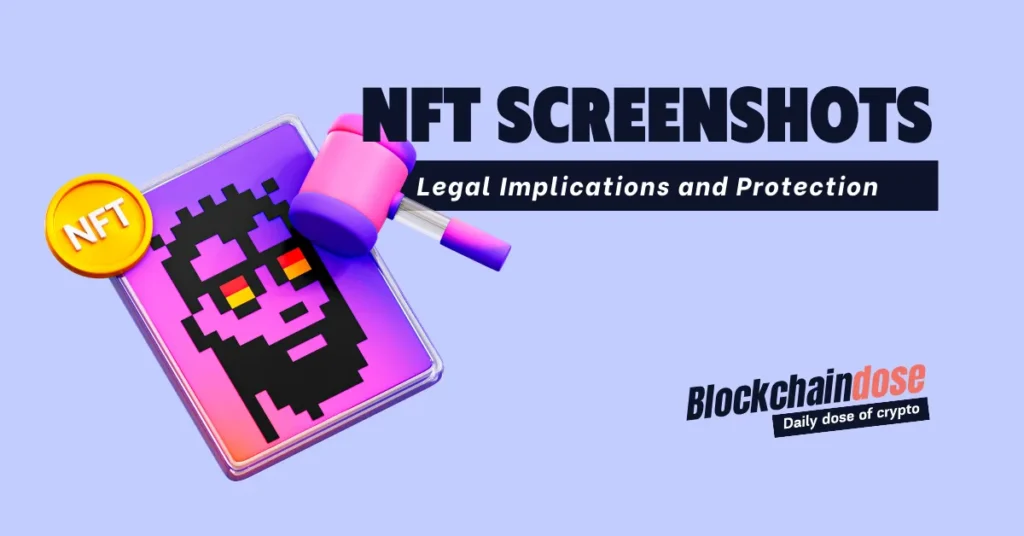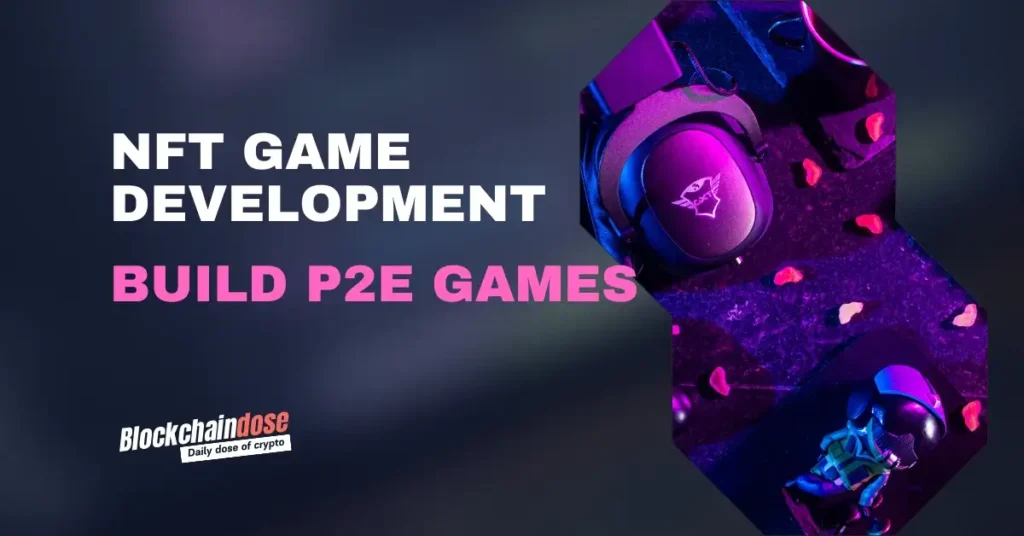Ever wondered what it means to own a piece of the internet? Welcome NFT domains.
In 2023 alone, over 13.2 million new domains were registered, with 33,000 new domains popping up daily. As of 2024, there were over 350.5 million active domains worldwide.
However, the issue is that most people don’t own their domains—they rent them. With the birth of NFT domains, everything is changing on the internet. These NFT-focused domain names allow you to completely own your digital identity with neither middlemen nor renewal fees.
But how does this concept work, and what makes it different from traditional domains? Let’s explore NFT domains and understand why they are becoming a hot topic in the crypto realm.
What Are NFT Domains?
NFT domains are already a popular trend in the blockchain world, where users can register web3 domain names using blockchain technology.
But what is a domain name?
In simple terms, domain names are web addresses used to access online pages. Behind the scenes, websites rely on long strings of numbers known as IP (Internet Protocol) addresses. It is almost impossible to memorize IP addresses, which is why the concept of domain names comes to life. They convert the domain names into machine-readable addresses.
These IP addresses are complex to remember, so the idea of domain names was born. Domain servers simply convert human-friendly domain names into machine-readable IP addresses.
Now, back to NFT domains!
An NFT domain exists as a unique, non-fungible token on the blockchain. Also known as decentralized domains, these allow owners to use a registered name as both a wallet address and a user name in various Dapps.
Like every other non-fungible token, these domains exist on blockchain as unique assets capable of being transferred. Yet, NFT domains do not prove ownership of a file like video, music, or image but rather a particular web3-focused domain name.
As the internet world moves steadily towards Web3 and decentralization, NFT domains gain further popularity owing to their long-term benefits.
In summary, NFT domains are created or minted just like normal NFTs. Once minted, each domain name can never be replicated or altered. Ownership information and transaction history are securely stored on the blockchain, bolstering security and transparency.
Popular NFT Domains
Most NFT domains fall into the following extensions:
- .crypto – famous for crypto-related web pages and blockchains minted on the Ethereum chain
- .eth — Popularly managed by the Ethereum name service and associated with dApps and Ethereum wallets.
- .nft — Popularly used by NFT enthusiasts, artists and creators.
- .dao — used for Decentralized Autonomous Organisations
- .zil — Popularly used by users and developers of the Zilliqa blockchain network.
Uses of NFT Domains
Unlike their traditional counterparts, NFT Domains enjoy a world of unique functionalities, providing users with newer ways to interact with digital platforms. Among the famous use cases include:
Decentralized Websites: Actual Domain Names
NFT domains can host decentralized websites. In essence, just like domain names serve as URLs for traditional web pages, NFT domains can work as URLs for decentralized websites. The result of using web3 domains for web pages is that the website owner enjoys privacy, security and control over the site and content.
Crypto Payments: NFY Domains as Wallet Addresses
Traditionally, selling a simple cryptocurrency payment demands that you copy a very long, alphanumeric, and complicated wallet address. In almost all cases, the extended address is impossible to remember.
However, NFT domain names are for wallet addresses, while domain names are for IP addresses. Instead of remembering the entire wallet address, a user must remember the domain name and send transactions through it.
For instance, you can send the funds to blockchaindose.eth or john.nft.
Digital Identities: Social Profiles
Third comes the NFT domain application in digital identities. Your Domain can be your social media profile and identifier. Whether interacting with blockchain-based social networks or managing assets in a crypto wallet, the NFT domain is a good and unique way to verify your identity.
NFT domains have been seeing a massive increase in popularity owing to their capacity to act as digital identifiers. Businesses have been looking into the NFT domain space for their branding efforts.
How Do NFT Domains Work?
Domain NFTs’ power, functionality, efficiency and effectiveness stem from their backing technology, blockchain. This underlying technology is the backbone for NFT domains’ creation, movement, storage and general ownership.
Other sub-technologies, like smart contracts, specially designed with rules and properties specific to the NFT domain in question, are built on top of blockchain. These smart contracts work hand-in-hand with blockchain, bolstering the transparency, security, and immutability of the NFT domains.
The former goes through a simple process popularly known as minting to turn a domain name into an NFT domain. Minting is creating an NFT from digital files like art, PDF, video and more. Now, NFT domains are also made in a similar style.
By blending the transparency afforded by blockchain and the efficiency of smart contracts, NFT domains offer a more secure and efficient option for owning and managing domain names.
How to Mint These Domains
The simplest way to create an NFT domain is to use already existing providers like the above-mentioned .crypto, .eth, or others. Let’s take ens-domain issued .eth as our example for the article.
The minting process is simplified below as follows:
Step 1: Select Name
The initial step in creating a domain NFT is selecting your name. For instance, you can use name.eth, like blockchaindose.eth.
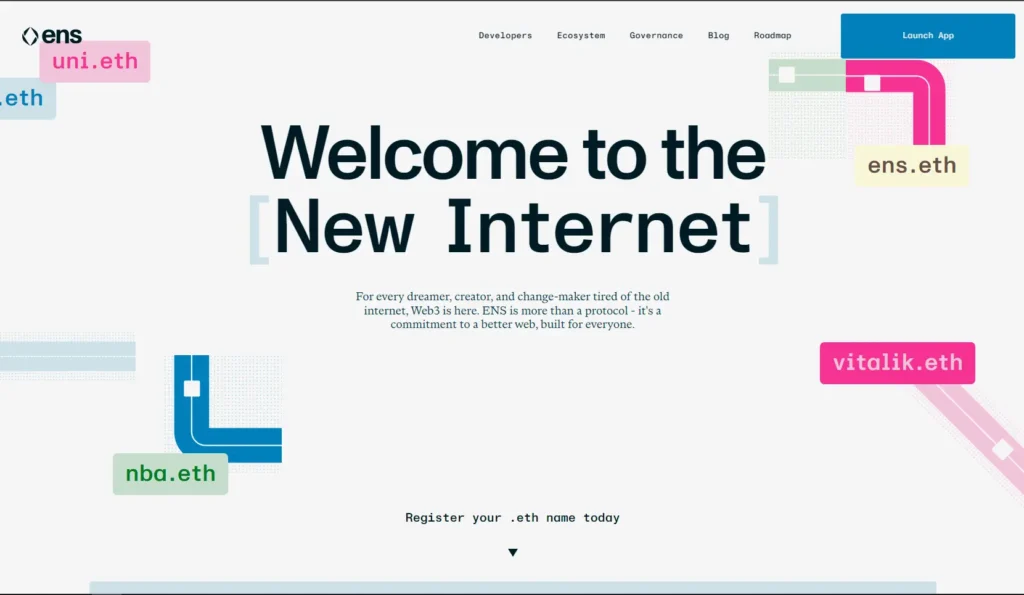
Visit ens.domains, and click Launch App in the top right corner. You will be redirected to a new page.
Step 2: Link Your Wallet
Click Connect at the top right corner to link your wallet. A new page will pop up with a list of wallets, including MetaMask, Browser Wallet, WalletConnect, Rainbow, Coinbase, Ledger, and Ardent.
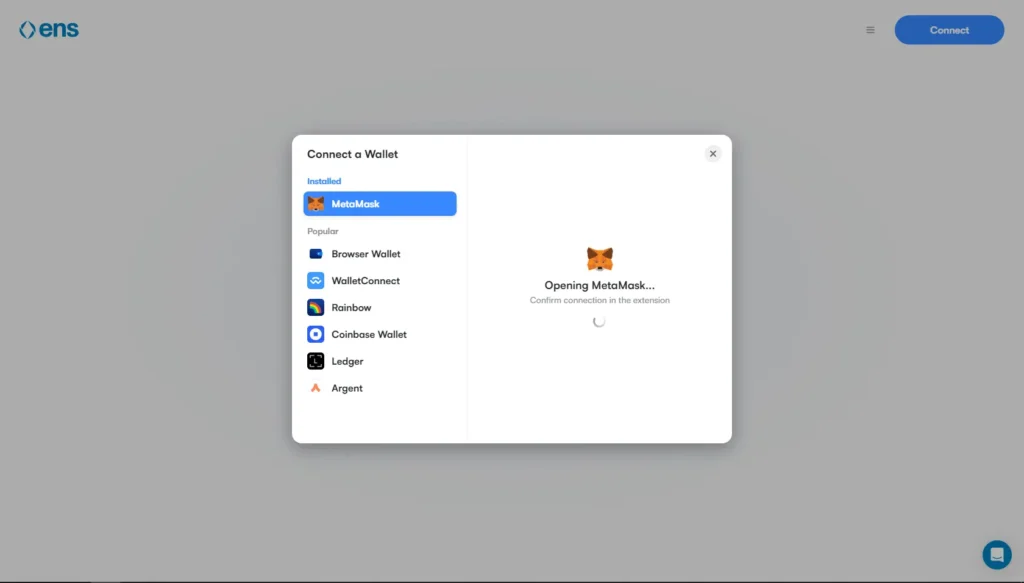
Click Metamask, and the connection process will start. Complete a series of confirmations before ENS domains connect to your wallet.
Step 3: Search for Name
Use the search button to quickly search for your name and see whether it’s available.
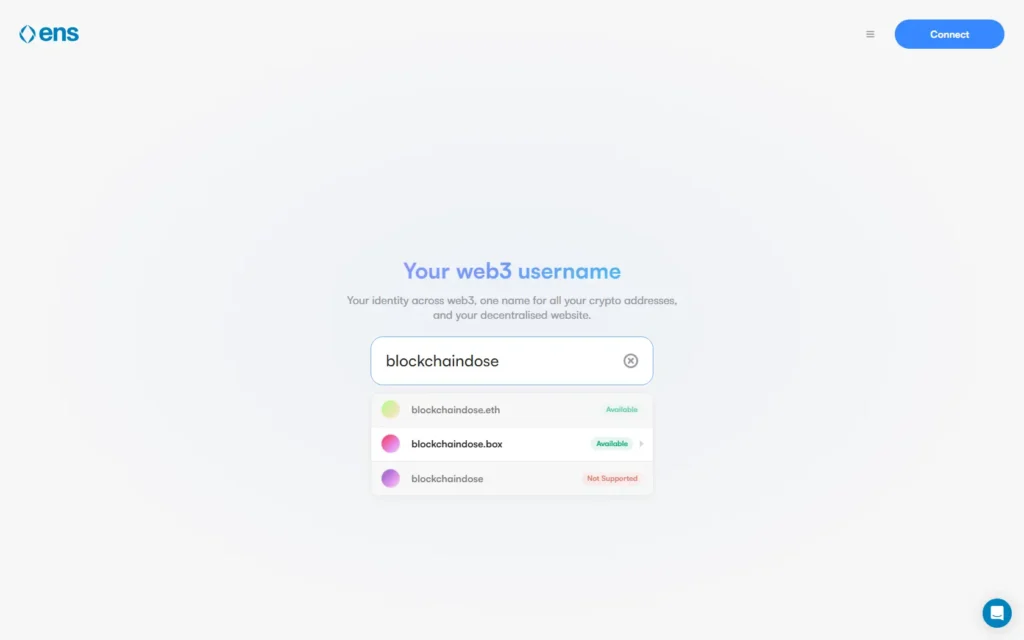
In this case, blockchaindose.eth is available. Click enter, and a new page opens.
Step 4: Register Blockchaindose.eth
At this point, you can register the domain name and set the number of years to register.
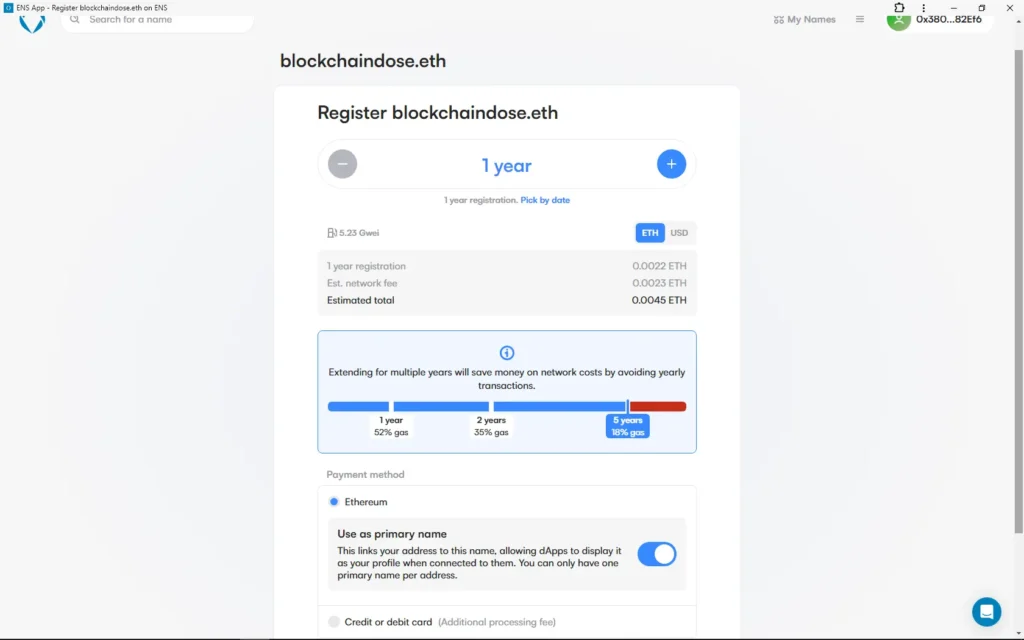
The network autonomously calculates the amount of ETH needed for gas and registration.
Step 5: Complete Payments
You can complete the payments with your Metamask wallet. If you have the needed ETH in your wallet, you can complete your domain registration.
The minting process is entirely managed by smart contracts based on preset conditions. Because of the power of smart contracts, you can be sure your Domain can not be altered. For storage on blockchain, the ENS network stores the names in the ERC-721 or ERC-1155 standards, popular with NFTs.
After the minting process, you will own the Domain you created, which can be verified on the blockchain.
How To Buy an NFT Domain
Alternatively, you can purchase a ready NFT domain that is available in the markets. Like minting, the process of buying is simple. However, unlike in minting, you cannot enjoy the benefits of personalized names with buying.
Unstoppable Domain is a good marketplace for buying NFT domains in 2024. Visit the web page and sign up to buy a domain.
Step 1: Signup with Metamask
Click login in the top right corner of the home page. Select the Signup option below. Again, you have several signup options, including email, Google, X, and Connecting Wallet.
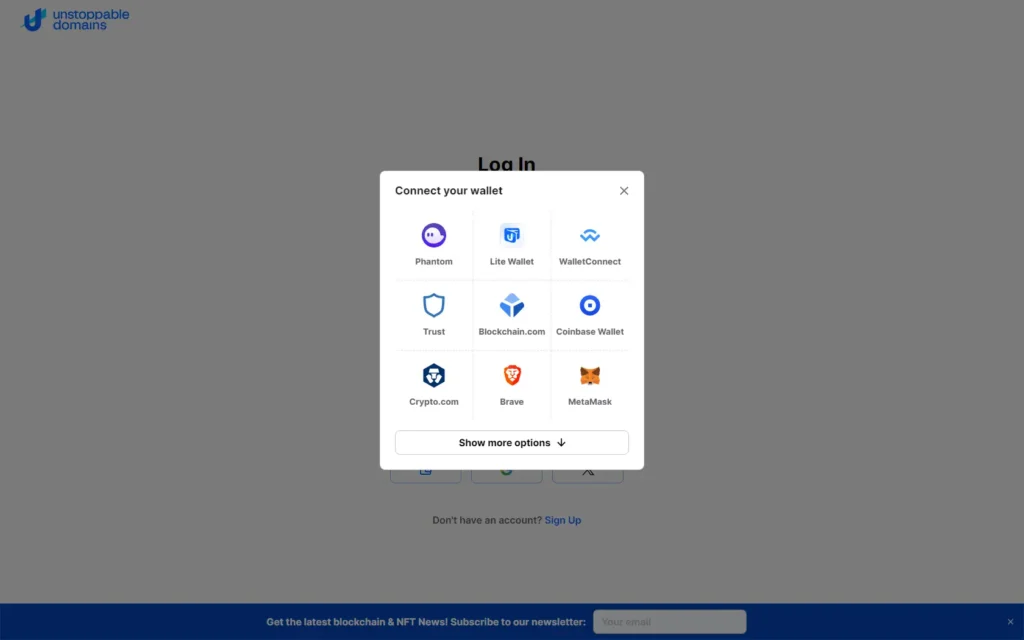
In our case, we chose to connect the wallet, specifically Metamask. You are logged in.
Step 2: Search your Domain Name and Add to Cart
On the home page, search for the domain name you want. Your search could bring you exactly what you want or something close to it.
Add the NFT domain you target to the cart. Click Continue to Cart, and you will see your new NFT therein.
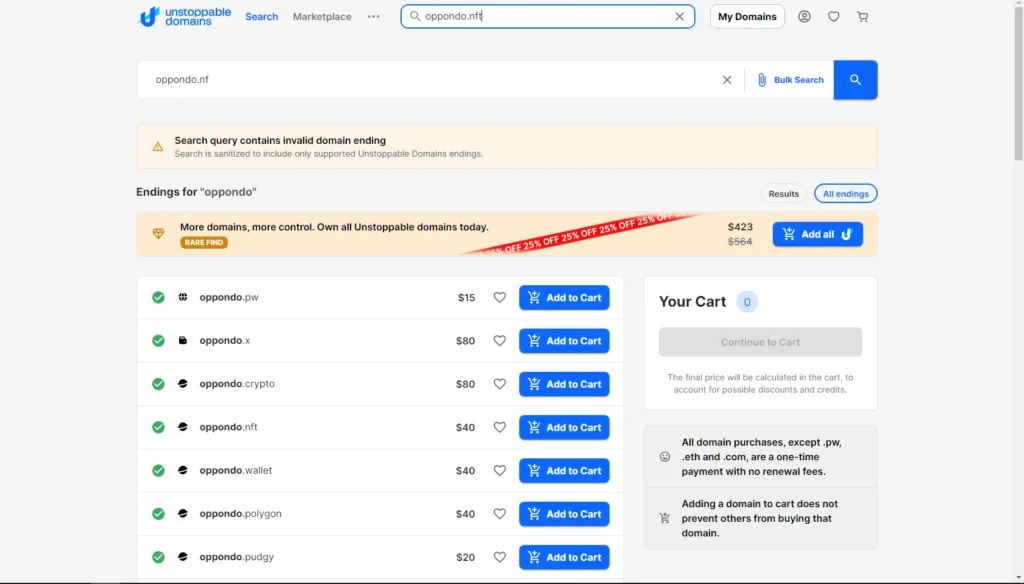
You can confirm the details in the cart by clicking ‘Go to Checkout.’
Step 4: Select and Complete Payments
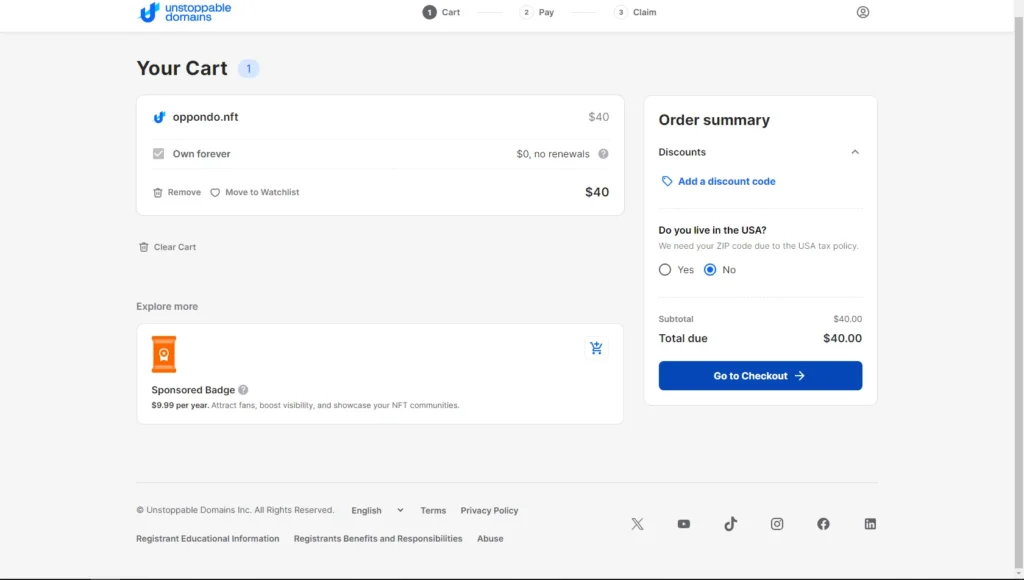
Select the payment options from the available Card, Paypal, Crypto or Crypto.com. In our case, we went with crypto and, finally, Metamask. You must complete a series of confirmations before you genuinely own the Domain.
Benefits of NFT Domains over Traditional Counterparts
NFT domains offer several advantages over traditional domain names, thanks to their foundation on blockchain technology. Here’s how NFT domains stand out compared to their conventional counterparts:
Full Ownership with No Renewal Fees
Unlike traditional domains demanding annual renewal fees, NFT domains can be wholly owned once purchased. In some platforms, you can set the maximum number of years for ownership of the Domain. But, in most cases, NFT domains are wholly owned by the user.
In other words, the one-time payment to mint the NFT gives you perpetual ownership with no recurring costs.
Decentralization and Censorship Resistance
Traditional domain names operate on hugely centralized structures, so governments can censor or control them. On the contrary, the blockchain based domains are decentralized and, hence, resistant to external control and censorship.
Versatility Beyond Web Addresses
Traditional domain names are simply web page addresses. However, NFT domains come with a little more versatility.
Blockchain-focused domains have gained applications in digital identity, crypto wallets, and email addresses. The versatility bolsters the value of the NFT domain.
Enhanced Security and Privacy
Compared to traditional domains, NFT domains enjoy a little more security and privacy. Every transaction or transfer is recorded on the blockchain, making it harder for malicious actors to tamper with them. The decentralization also means that the platform remains more private and secure.
Tradability and Resale Opportunities
Unlike traditional domains, which can be cumbersome to sell or transfer, NFT domains are much easier to trade. These can be sold or traded on NFT marketplaces like OpenSea or Rarible as blockchain-based assets. By making the domain names tradable, the domain owners transparently enjoy profits.
Support for Decentralized Websites
These decentralized domains can host decentralized web pages on platforms like the InterPlanetary File System (IPFS). Unlike traditional domains that primarily rely on centralized hosting providers, NFT domains are decentralized, meaning easier accessibility and more freedom.
Final Word
This guide dug deep into the subject of NFT domains, explaining their role in the decentralized web. Moreover, our guide has given steps on how to mint domain names or buy them from a supportive marketplace. Before choosing a single NFT domain, thoroughly research the individual domain.
